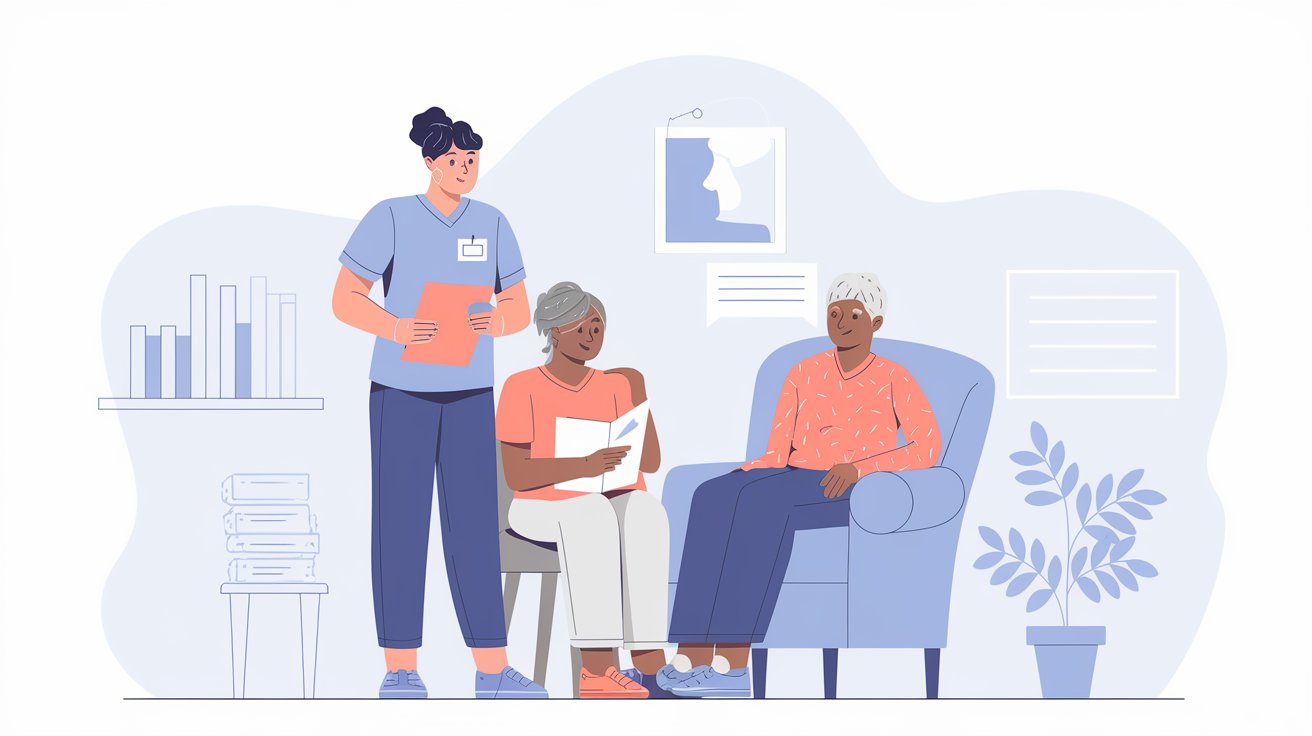Caring for a loved one is both rewarding and challenging, and it’s important to be prepared for the journey ahead. Whether you’re new to caregiving or have been at it for a while, understanding the emotional and practical aspects can make a big difference. Here are the key topics we cover in this article:
- What you can expect
- What to keep in mind
- The changing relationship
- How to deal with declining health
- Fact or fiction
- Why choose iD products
- Dealing with the emotions that come with caregiving
- How do you define a carer?
What You Can Expect
Becoming a caregiver for a loved one is a significant life change, and it can be both rewarding and challenging. You may be responsible for helping them with everyday tasks like dressing, eating, and managing medical or personal needs. In the beginning, it can feel overwhelming as you adjust to these new responsibilities. Expect a learning curve as you navigate the emotional, physical, and logistical aspects of caregiving, and remember, it’s normal to feel unprepared at first. Over time, you’ll develop routines and strategies that work best for you and your loved one.

What to Keep in Mind
As a new caregiver, there are a few important things to keep in mind:
-
- Patience is key: You may need to adapt as your loved one’s needs change, and it can take time to get into a rhythm.
- It’s okay to ask for help: No one can do it all alone. Whether it’s getting support from family, friends, or professional services, don’t be afraid to reach out.
- Self-care is crucial: It’s easy to neglect your own well-being when caring for someone else, but looking after yourself is essential to avoid burnout and ensure you’re able to provide the best care. Visit our Taking Care of Yourself page to explore ways to manage stress and stay healthy.
The Changing Relationship
Caregiving can alter the dynamic of your relationship with the person you care for. If they’re a parent, spouse, or sibling, you may notice shifts in your roles. You might become more of a decision-maker, taking on responsibilities they previously handled. This can create emotional challenges, as you both adjust to new roles. It’s important to maintain respect, empathy, and open communication, ensuring that your loved one feels involved in their care, even as their independence decreases.
How to Deal with Declining Health
Seeing a loved one’s health decline can be emotionally difficult. It’s important to stay informed about their condition, so you can better understand what’s happening and how to manage it. Talk with healthcare professionals, attend appointments with your loved one, and ask questions. Emotional support for both you and your loved one is crucial, whether it’s through therapy, support groups, or simply taking time to discuss feelings openly.

Fact or Fiction
As a new caregiver, you might hear many myths or misconceptions about caregiving and incontinence. Let’s clear up a few:
-
- Fiction: “Incontinence only happens to elderly people.”
Fact: Incontinence can affect people of all ages, not just the elderly. - Fiction: “I have to do everything myself.”
Fact: You don’t have to shoulder the entire burden. There are professional services, family members, and community resources available to help. - Fiction: “Incontinence products are all the same.”
Fact: Not all incontinence products offer the same comfort, protection, and absorbency. Choosing the right one can make a significant difference in your loved one’s comfort and your ease of caregiving. Learn about How to Use Our Products effectively to ensure comfort and quality care.
- Fiction: “Incontinence only happens to elderly people.”
Why Choose ID Over Others?
When it comes to managing incontinence, the right product can make all the difference for both caregivers and their loved ones. Here’s why ID products stand out:
-
- Superior Absorbency: Ontex products are designed with high-performance materials that offer better absorbency and leak protection, ensuring your loved one stays dry and comfortable for longer periods.
- Comfort and Fit: With ID, you can count on a wide range of sizes and designs that ensure the best fit, reducing the chance of irritation or discomfort.
- Innovative Technology: ID products feature advanced technology that provides breathability, reduces skin irritation, and maintains healthy skin conditions, even with frequent use.
- Cost-Effectiveness: While maintaining premium quality, ID provides excellent value for money, ensuring you don’t have to compromise on care.
Incontinence Explained is a must-read for caregivers dealing with incontinence. Learn about different product solutions and care techniques.
Dealing with the Emotions That Come with Caregiving
Caregiving can trigger a wide range of emotions, including stress, frustration, guilt, and even resentment at times. It’s important to acknowledge these feelings and understand that they’re normal. Consider these tips for managing your emotions:
-
- Talk about it: Don’t bottle up your feelings. Find someone you trust, whether it’s a friend, family member, or counselor, to share your experiences and feelings.
- Take breaks: Regular breaks are necessary to recharge your emotional and physical energy. Even short respites can make a difference.
- Find support: Joining a caregiver support group can help you connect with others going through similar experiences. You’ll realize you’re not alone and can share coping strategies.
How Do You Define a Carer?
A carer (or caregiver) is anyone who provides unpaid care and support to a friend, family member, or loved one who is ill, elderly, or living with a disability. Caregivers may assist with everyday tasks such as feeding, bathing, dressing, managing medications, or helping with mobility. Importantly, caregivers don’t need to have formal training – they are individuals who step up to help someone who can’t fully care for themselves. Often, caregiving comes naturally as a loved one’s needs increase, but it’s a role that requires dedication, resilience, and compassion.
Related articles

We encourage you to explore the articles we’ve gathered to help you navigate caregiving challenges more effectively. These articles provide essential advice for both new and experienced caregivers.
- 4 Tips for taking care of an elderly parent with incontinence »
- Managing incontinence in children with disabilities »
- Why is good hydration important for urologic health and what is beneficial to drink? »
- How to handle sudden bedwetting in adults with limited mobility »
- How to manage an overactive bladder at night »
